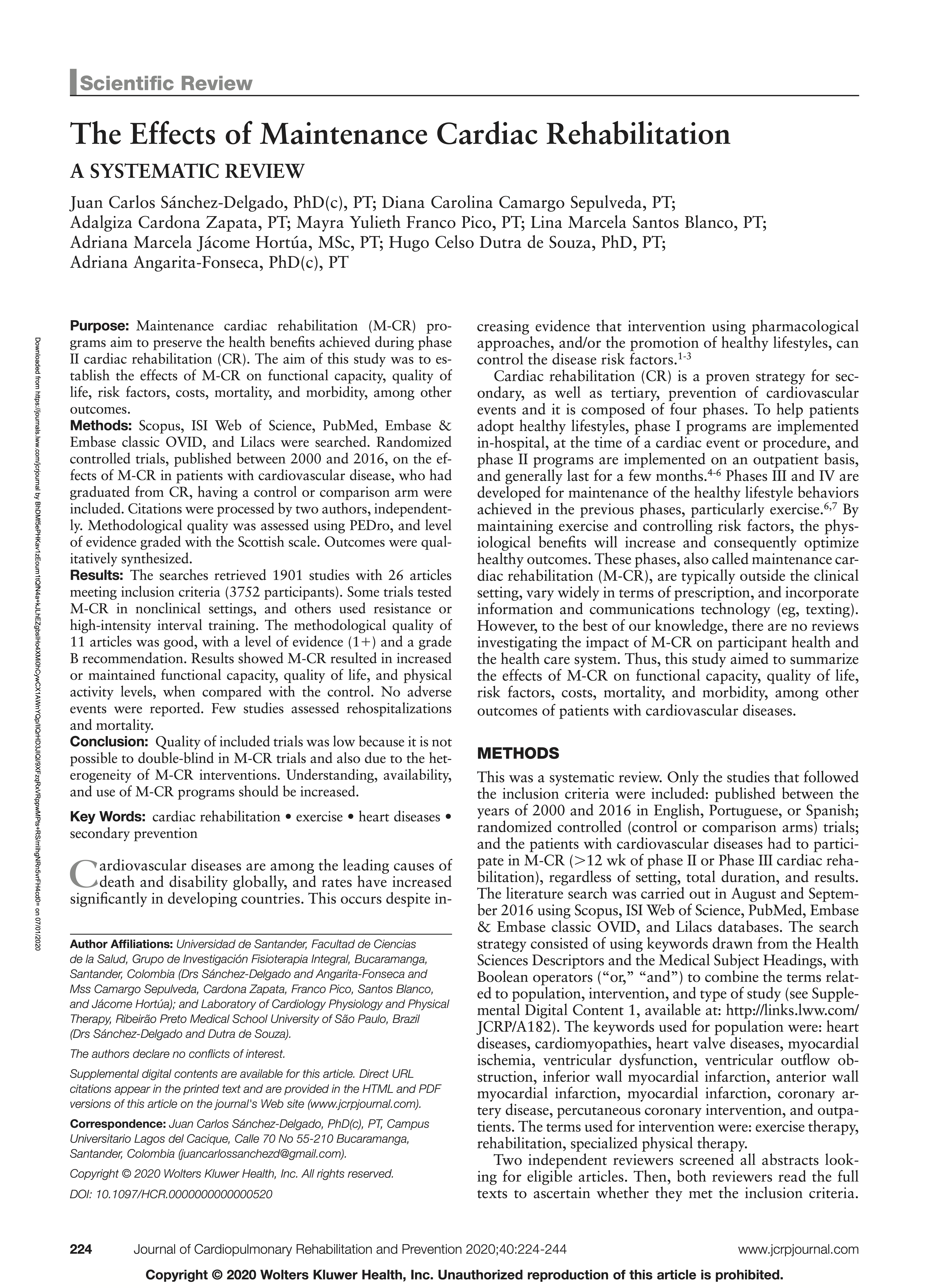The Effects of Maintenance Cardiac Rehabilitation: A systematic review

BibTeX
Abstract
Purpose: Maintenance cardiac rehabilitation (M-CR) programs aim to preserve the health benefits achieved during phase II cardiac rehabilitation (CR). The aim of this study was to establish the effects of M-CR on functional capacity, quality of life, risk factors, costs, mortality, and morbidity, among other outcomes.
Methods: Scopus, ISI Web of Science, PubMed, Embase & Embase classic OVID, and Lilacs were searched. Randomized controlled trials, published between 2000 and 2016, on the effects of M-CR in patients with cardiovascular disease, who had graduated from CR, having a control or comparison arm were included. Citations were processed by two authors, independently. Methodological quality was assessed using PEDro, and level of evidence graded with the Scottish scale. Outcomes were qualitatively synthesized.
Results: The searches retrieved 1901 studies with 26 articles meeting inclusion criteria (3752 participants). Some trials tested M-CR in nonclinical settings, and others used resistance or high-intensity interval training. The methodological quality of 11 articles was good, with a level of evidence (1+) and a grade B recommendation. Results showed M-CR resulted in increased or maintained functional capacity, quality of life, and physical activity levels, when compared with the control. No adverse events were reported. Few studies assessed rehospitalizations and mortality.
Conclusion: Quality of included trials was low because it is not possible to double-blind in M-CR trials and also due to the heterogeneity of M-CR interventions. Understanding, availability, and use of M-CR programs should be increased.
Key-words: cardiac rehabilitation; exercise; heart diseases; secondary prevention
